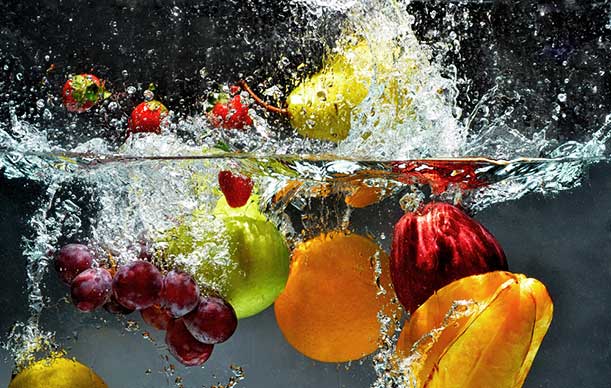Healthy nutrition for Ramadan (4)

Healthy nutrition for Ramadan (4)
From the book "300 questions in comprehensive nutrition"
By Dr. Cherifa Aboul Fettouh
The suitable diet for hypothyroidism and kidney stones patients in Ramadan
Q: A man suffering from hypothyroidism, which causes him a higher heart rate, wants to know the suitable diet for him in Ramadan?
A: A higher heart rate means that the thyroid gland is active (hypothyroidism) and he has to consult a doctor. And for the suitable diet, he can rely mainly on eating vegetables and fruits to represent most of the breakfast dish, then fish, then foods that contain bran like bread, whole wheat, etc., and calcium.
Q: How can a kidney stones patient be able to fast during the month of Ramadan?
A: There are more than one type of kidney diseases, also more than one type of kidney stones; patients who get kidney stones through heredity, patients who get them due to bad nutrition or errors in the metabolism and other reasons. So we will refer to all kinds of kidney stones patients by "kidney stone disease". These patients are able to fast despite of their strong need to drink water frequently with releasing the equivalent to 2 liters of water daily. Therefore, they should drink 3 cups of water for breakfast before eating, and drink 2 liters of water between breakfast and suhoor, 1 hour before or after eating.
They shall refrain from consuming all the following:
1. Carbonated water (soda) of all kinds, as well as different kinds of caffeine, and replacing them with natural fluids and herbs.
2. Animal products, except fish only twice a week.
However, fish is prohibited for one type of kidney stone disease, which is related to "oxalates", because they cause releasing important minerals from the body through the kidneys such as calcium, phosphorus and folic acid.
3. All brown foods and drinks such as "cola" and caffeine products like tea, coffee, cocoa and chocolate.
4. Foods that contain "oxalates" such as: spinach, beets, dried figs and tomatoes (that contains a small percentage of oxalates).
And the allowed foods, according to numerous scientific researches:
Patients with kidney stones must eat foods rich in vitamin "A".
Where a question arises: How can they consume foods rich in vitamin A, although they're prohibited from eating meat that contains vitamin "A"?
The solution here is that "beta carotene" is the best source of vitamin "A" and suitable for patients with kidney stones, which means any plant foods such as carrots, pumpkins and potatoes.
And "complex carbohydrates" such as brown rice (with hull), whole wheat (with hull) while refraining from simple carbohydrates "refined" white bread, sugar ... etc., because it helps the systematic secretion of insulin from the pancreas.



Previous comments
No Previous Comment
Add Comment